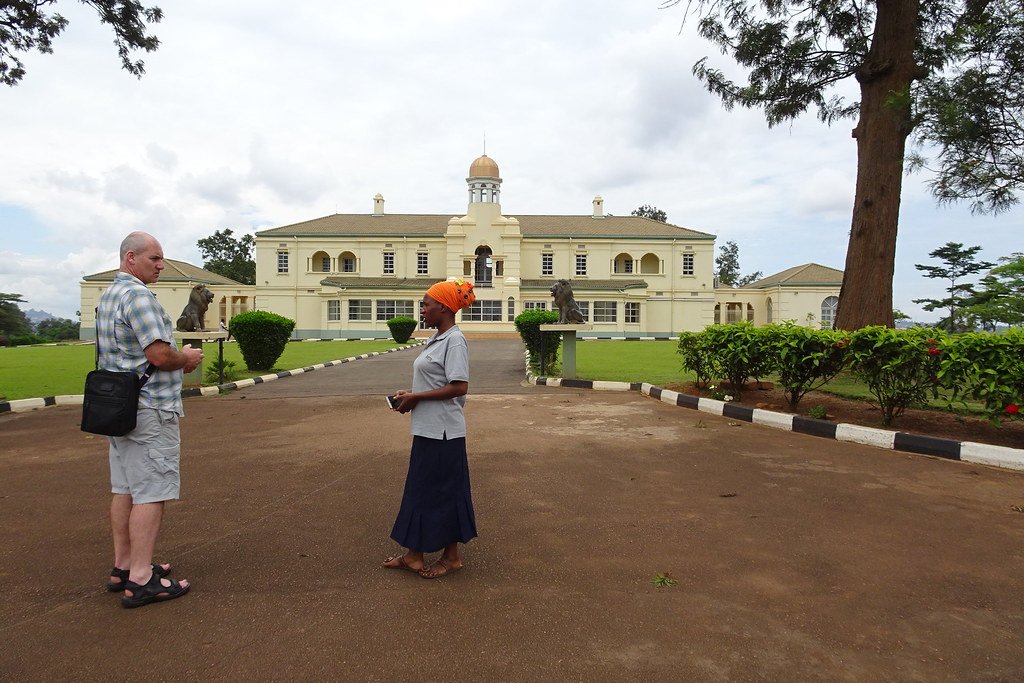Lubiri Palace and the Heritage of the Buganda Kingdom
Lubiri Palace and the Heritage of the Buganda Kingdom details the information about the Palace, also known as the Mengo Palace or Kabaka’s Palace which is a historical and cultural gem located in Kampala, Uganda.
It served as the former royal residence of the Buganda Kingdom, playing a significant role in the kingdom’s governance and traditions.

With its impressive architectural design, rich history, and cultural significance, Lubiri Palace offers visitors a fascinating glimpse into the heritage of the Buganda people.
Guided tours, cultural performances, museums, and beautifully landscaped gardens make a visit to Lubiri Palace a captivating experience, allowing you to immerse yourself in the royal legacy of Uganda’s Buganda Kingdom.
Here are some key points about Lubiri Palace:
Historical Significance:
Lubiri Palace holds immense historical significance in Uganda. Here are some key points regarding its historical importance:
- Seat of Buganda Kingdom: Lubiri Palace served as the official residence and administrative center of the Buganda Kingdom’s kings, known as Kabakas. It was the seat of political power, where the Kabakas conducted their royal duties, held meetings, and made important decisions regarding the governance of the kingdom.
- Colonial Era: Lubiri Palace played a significant role during Uganda’s colonial period. It became a center for negotiations and discussions between the Buganda Kingdom and the British colonial administration. The palace witnessed important events and agreements that shaped the relationship between Buganda and the colonial authorities.
- Cultural Preservation: The palace symbolizes the rich cultural heritage of the Buganda Kingdom. Despite challenges faced during the colonial era and subsequent political changes, Lubiri Palace stands as a testament to the resilience and preservation of Buganda’s cultural traditions, customs, and royal history.
- Independence Movement: During Uganda’s struggle for independence, Lubiri Palace became a focal point for political activities. It hosted meetings and gatherings where leaders, including Kabaka Mutesa II, rallied for self-rule and the liberation of Uganda from colonial rule. The palace became a symbol of resistance and the desire for independence.
- Restoration and Symbolic Importance: Lubiri Palace underwent restoration efforts after being partially destroyed in a fire in 1966. The restoration aimed to preserve its historical and cultural significance, ensuring that it remains an enduring symbol of Buganda’s heritage and the kingdom’s ongoing relevance in Ugandan society.
- Cultural Events and Ceremonies: Lubiri Palace continues to host important cultural events and ceremonies that showcase Buganda traditions and customs. These events include coronations, royal celebrations, and cultural festivals, where visitors can witness the vibrancy and continuity of Buganda’s cultural practices.
The historical significance of Lubiri Palace lies in its role as the seat of the Buganda Kingdom, its connection to Uganda’s colonial and independence periods, its preservation of cultural heritage, and its ongoing importance as a cultural and historical landmark. A visit to Lubiri Palace offers a glimpse into Uganda’s past, allowing visitors to appreciate the rich history, traditions, and contributions of the Buganda Kingdom to the nation’s identity.
Architectural Beauty:
The palace showcases impressive architectural design and craftsmanship. The main structure features a blend of traditional African architectural elements with colonial influences. The palace complex includes royal chambers, reception halls, courtyards, and other structures, displaying the cultural heritage and architectural styles of the Buganda Kingdom.
Cultural Significance:
Lubiri Palace holds immense cultural significance as a symbol of the Buganda Kingdom’s heritage and traditions. Here are some key points regarding its cultural importance:
- Buganda Kingdom’s Cultural Center: Lubiri Palace serves as a cultural center for the Buganda Kingdom, showcasing and preserving its unique traditions, customs, and way of life. The palace complex stands as a physical representation of the kingdom’s rich cultural heritage, providing a space for the continuation and celebration of Buganda’s cultural practices.
- Royal Ceremonies and Rituals: Lubiri Palace is the site of various royal ceremonies and rituals that are deeply rooted in Buganda’s culture and history. These ceremonies, such as coronations, royal birthdays, and other traditional festivities, demonstrate the kingdom’s cultural values, social hierarchy, and customary practices. Visitors to the palace can witness these ceremonial events and gain insights into the significance of each ritual.
- Buganda Cultural Museum: Within the palace complex, there is a Buganda Cultural Museum that displays artifacts, regalia, traditional clothing, musical instruments, and other objects of cultural importance. The museum provides visitors with a comprehensive understanding of Buganda’s cultural heritage, offering a glimpse into the kingdom’s history, craftsmanship, and artistic expressions.
- Traditional Architecture and Design: The architectural elements of Lubiri Palace reflect Buganda’s traditional building styles and design principles. The intricate woodwork, thatched roofs, and use of local materials demonstrate the craftsmanship and artistic sensibilities of the kingdom. Exploring the palace allows visitors to appreciate the architectural beauty and understand the cultural significance of the structures.
- Cultural Performances and Exhibitions: Lubiri Palace hosts cultural performances, including traditional music, dance, storytelling, and drama. These performances showcase the vibrant artistic traditions of the Buganda people, allowing visitors to experience the rhythms, melodies, and narratives that have been passed down through generations. Additionally, exhibitions within the palace provide insights into various aspects of Buganda’s culture, such as marriage customs, kinship systems, and religious beliefs.
- Preservation of Language and Oral Traditions: Lubiri Palace serves as a space for the preservation and transmission of Buganda’s language and oral traditions. The palace complex provides a platform for storytelling, folklore, and the sharing of historical accounts, ensuring that Buganda’s cultural narratives and linguistic heritage continue to thrive.
Lubiri Palace’s cultural significance lies in its role as a custodian of Buganda’s traditions, its embodiment of cultural practices and rituals, its educational and informative exhibits, and its celebration of artistic expressions. It stands as a testament to the enduring cultural identity of the Buganda people and offers visitors a unique opportunity to engage with and appreciate the richness of Buganda’s cultural heritage.
Guided Tours:
Lubiri Palace offers guided tours, providing visitors with an opportunity to explore the palace complex and learn about its history and cultural significance. Knowledgeable guides share stories, anecdotes, and historical facts, enriching the visitor’s experience and creating a deeper understanding of the Buganda Kingdom’s heritage.
Cultural Performances:
The palace occasionally hosts cultural performances, including traditional music, dance, and storytelling. These performances showcase the vibrant cultural traditions of the Buganda people and offer visitors a chance to immerse themselves in the kingdom’s artistic expressions.
Museums and Exhibits:
Within the palace complex, there are museums and exhibits that display artifacts, historical documents, royal regalia, and other items of cultural significance. These displays provide a glimpse into the rich history and traditions of the Buganda Kingdom, allowing visitors to connect with the past and appreciate its legacy.
Gardens and Grounds:
Lubiri Palace is set amidst beautifully landscaped gardens and grounds, offering a serene and picturesque environment. Visitors can stroll through the gardens, enjoy the peaceful ambiance, and capture memorable photos against the backdrop of the palace and its surroundings.
A visit to Lubiri Palace provides a unique opportunity to delve into the rich history, culture, and architectural beauty of the Buganda Kingdom.
Whether you’re interested in history, culture, or simply seeking a deeper understanding of Uganda’s royal heritage, Lubiri Palace offers an engaging and immersive experience in the heart of Kampala.




